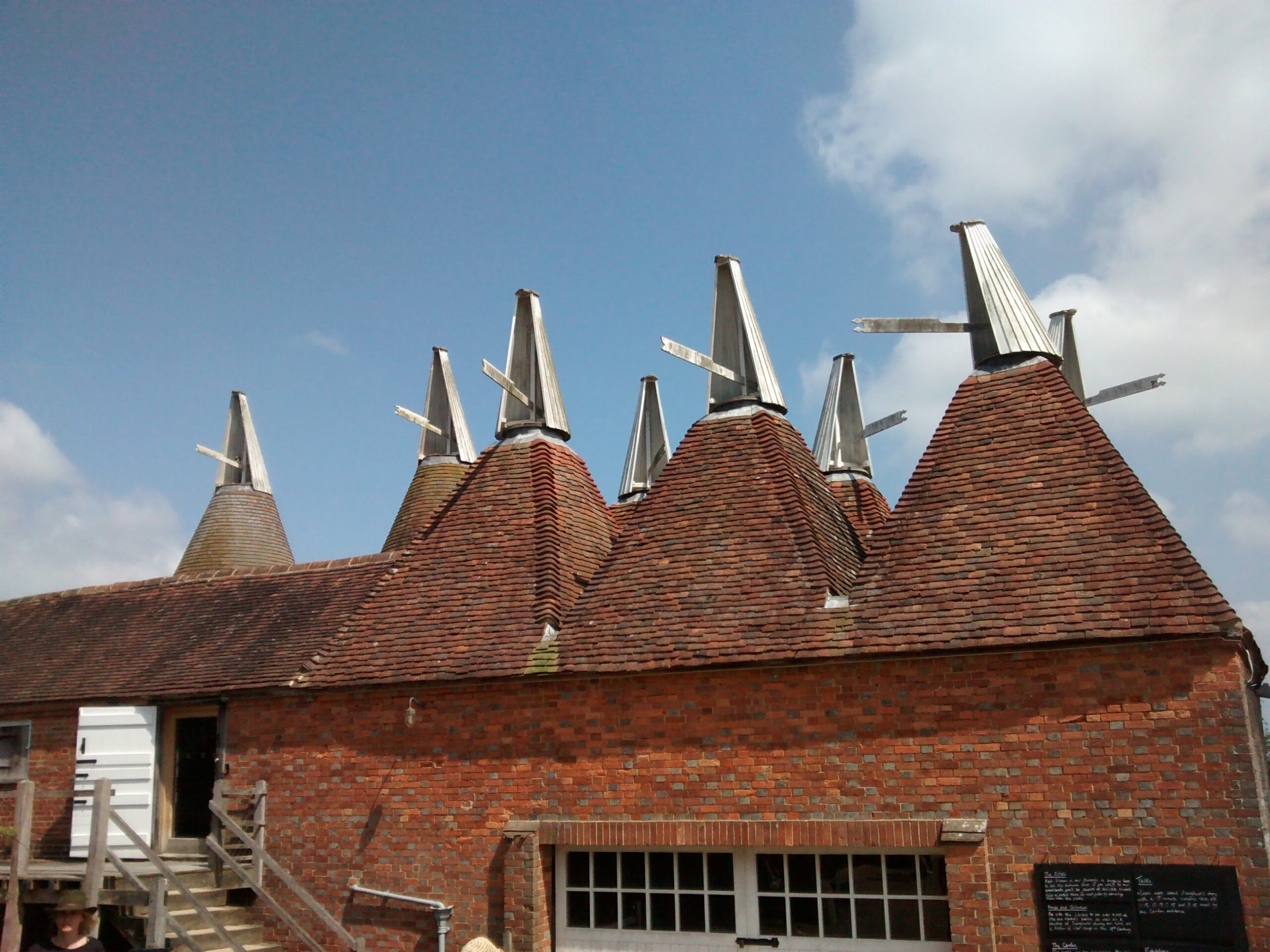Oasthouse cowls, Sissinghurst, Kent
Bitter Hops
I am the end of a Kent summer,
the careful cutting of the bine.
I return to pluck a bushel of woody twine
from the neon green hop burr.
I crush pellets in palms to molten spice,
warm the oil between my hands,
and lie in the long grass.
Inhale the bitter scent which drifts
across the North Downs.
Homeland of mine, bonds excised,
childhood spent.
I am an oasthouse, my arms wind-milling
in the lane — vernacular, an unyielding archetype.
I am irregular, obsolete. Tear me down,
I no longer fit.
I am a window jammed open
by the handle of a broom
as kilns burn deep and fierce,
kindled by hands that gathered the crop.
Weather-beaten, cloud-producing —
now gone soft. I finger the surfeit,
the humulus lupulus, it is resinous
and hard to prune, like me it is
loose of branch and historically
susceptible to pests.
I unfurl throughout the Spring,
found out too young that crops rotate
and cycles end.
And by that token I’ll admit,
I learned too late that neither a Kentish maid
nor a maid of Kent —
knows which side of the river is best.
They just keep going, in search
of the widest mouth.
There is a path through the woods,
on the rambling edge, past the icehouse
and the Roman halls. Buried in knee-height
reeds, its outline is battle-scarred and hard won.
But I am a British housing estate built
on top of buckled wheat fields,
on prime arable land.
The chuff burned to nub,
concrete poured to smooth stone.
The air is filled with chlorine,
from the nearby swimming pool.
I lay on the bench of the changing rooms
behind the cross country track I used to run
on a rain-soaked summer’s day.
In this stronghold, where they fought for soil.
Nothing changes — they replace their heroes,
kill their kin, from 1066 on and on and on.
I learned at school only a fraction of the wars,
of King Harold’s eye and a tapestry fading to dust,
saw them coming over the brow of the hill
when I was a girl, welcome
to this imaginary kingdom —
now in ruins.
